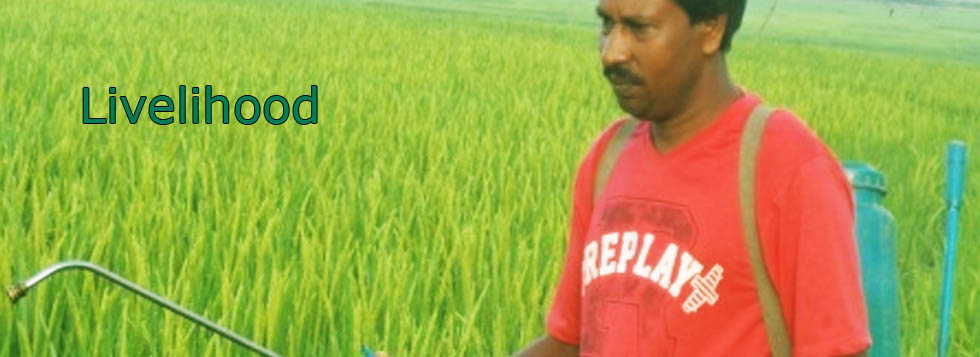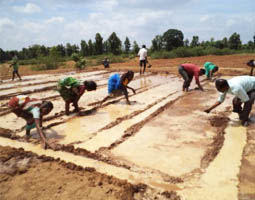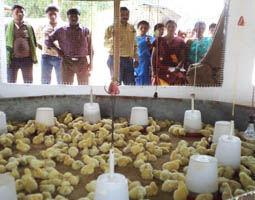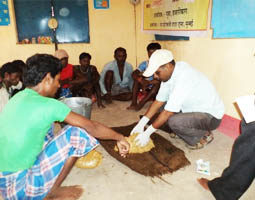
Livelihood
YUVA works mostly with Adivasis and poor people who live near forests for whom forests and trees have, traditionally, been an important source of livelihood. Over the years, dwindling forests and the implementation of protection-oriented public policies have made serious inroads to these livelihood activities, resulting in decreased incomes for the local communities.
A vast majority of the rural poor continue to be dependent on land and water resources for their meagre livelihoods. Sadly, however, various phenomena including deforestation, drought and soil erosion have resulted in decreased incomes for these families. Chronic poverty persists.
Programmes comprise of enhancing productivity in agriculture; diversifying into new crops; setting up irrigation systems; and instituting entirely new ways of managing the natural resource base.
Enhancing productivity and diversification are the core strategies of YUVA’s agriculture programmes. Specific activities are increasing the productivity of the main cereal crops to improve food security, and diversification into cash crops such as pulses, oil seeds, and vegetables.
YUVA teams, fielded in the undulating and hilly terrains, are working to encourage farmers to take up vegetable cultivation on their small-scale homesteads and near dug wells. These activities provide the poor families with a dependable source of income. At the heart of YUVA’s strategy has always been to work directly with the rural poor, build their capabilities, and introduce and develop new livelihood opportunities. While the organisation’s strategies, programmes, and methodologies have evolved over time, developing land and water resources has been a fixture in YUVA’s work.
Livelihood :



